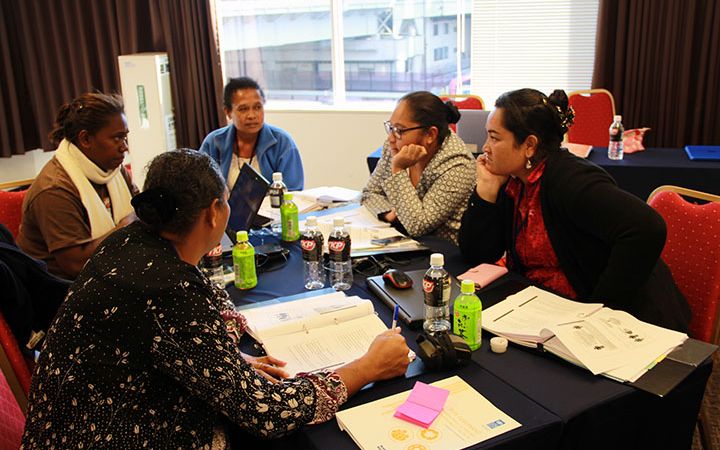Displaying 2801 - 2810 of 3508
12 June 2013, Geneva, Switzerland - Each year an increasing number of practitioners, international staff, and national experts take to studying International Humanitarian Law to have a better understanding of the rules and international conventions applying to armed conflict and internal violence.
5 June, Geneva, Switzerland - UNOSAT has been investing in the development of live web-based maps capable of providing rapid and essential information for disaster prevention and emergency response and able to integrate crowd sourced data, photos and videos. UNOSAT experts believe that this type of integrated, near-real time products will constitute the backbone of future geospatial decision support sy
28 May 2013, Malé, Republic of Maldives — The National Strategic Approach to International Chemicals Management (SAICM) Planning and Inception Workshop was held in Malé on 15-16 May 2013 to launch the project “Strengthening Capacities for National SAICM Implementation in Maldives,” which is funded by the SAICM Quick Start Programme Trust Fund. UNITAR is serving as the international executing agency.
23 May 2013, Geneva, Switzerland - The 2013 Global Platform for Disaster Risk Reduction (DRR), attended by a record 3,500 people and representatives from 172 governments, ended in Geneva after three days of meetings and side events with a call for "the immediate start of work to develop targets and indicators to monitor the reduction of risk." The other salient news from the large meeting was the confirmation that in 2015 there will be another global conference on disaster reduction.
21 May 2013, Geneva, Switzerland - After initial assessment, Humanitarian agencies are in agreement that Tropical Storm Mahasen that hit Bangladesh and Myanmar last week spared local populations any serious impact. What is more, the emergency was a positive test for inter-agency coordination for emergency response. The Humanitarian Coordinator in Myanmar underlined that both the government and UN agencies involved had been proactive in responding to the threat of the storm.
3 May 2013, Hiroshima, Japan - The UNITAR Hiroshima Office held a Public Session on Japan's Constitution Day, to pay tribute to the life and work of Beate Sirota Gordon. The event was held in partnership with ANT-Hiroshima [http://www.ant-hiroshima.org/], and titled "In Memory of Beate SIROTA GORDON: Women and the Constitution."
15 May 2013, Geneva, Switzerland - In its latest humanitarian bulletin on Syria, OCHA warns that “the humanitarian situation in Syria is catastrophic” and calls the relief needs of populations affected “immense.” Fierce fighting across large parts of the country has led to massive displacement of civilians and mounting refugee outflows.
10 May 2013, Geneva, Switzerland - On 15-16 May 2013, the international course of the Learning Platform on Human Mobility (LPHM) entitled “Addressing public perceptions of migrants, mastering communication strategies and partnering with the media” will take place in Antwerp, Belgium. This course is part of a series of learning opportunities resulting from an ambitious partnership between UNITAR and the Flemish Government, in collaboration with the City of Antwerp.
9 April 2013, Kabul, Afghanistan - UNITAR recently launched the Call for Applications for the 10th annual cycle of its highly successful Fellowship for Afghanistan Programme. The Fellowship is a seven-month long programme which builds the capacity and enhances the leadership, management, and professional skills of a core group of senior government officials, academics, and practitioners from Afghanistan.


